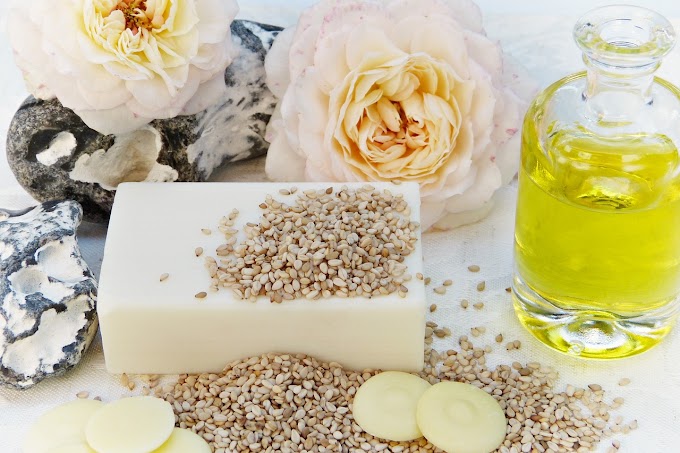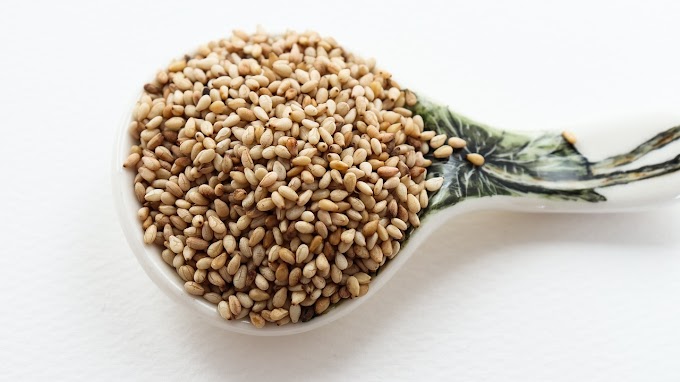Introduction
Within the realm of herbs and botanical wonders, few can rival the renown of Tulsi, scientifically known as Ocimum sanctum. Revered for its exceptional medicinal properties and rich cultural significance, Tulsi is often referred to as the "Queen of Herbs." In this article, we will delve into the captivating world of Tulsi, exploring its history, health benefits, and how to cultivate this regal herb in your own backyard. |
| Tulsi (Ocimum sanctum): The Queen of Herbs |
A Holistic Herb for Contemporary Living
In the fast-paced world of modern living, the timeless appeal of Tulsi extends beyond its historical and cultural roots. As individuals increasingly seek holistic approaches to well-being, Tulsi has found a renewed place in contemporary lifestyles. Its adaptogenic properties make it a valuable ally in managing stress, a prevalent concern in today's society. Tulsi tea, in particular, has become a popular choice for those looking to unwind and find a moment of tranquility amidst the hustle and bustle.Cultivating Tulsi as a Therapeutic Practice
Beyond its practical uses, growing Tulsi can also be seen as a therapeutic practice. Gardening, in general, has been recognized for its positive impact on mental health, and cultivating Tulsi provides a unique connection to ancient traditions. Tending to the growth of this revered herb allows individuals to experience the joy of nurturing a plant with deep cultural and medicinal significance. The act of planting, pruning, and harvesting Tulsi becomes a mindful practice, fostering a sense of connection to nature and well-being.A Sustainable Herb for Eco-Conscious Living
In an era where sustainability is a growing concern, Tulsi emerges as a sustainable herb for eco-conscious living. Being a hardy and resilient plant, it requires minimal resources to thrive. Its rich medicinal properties also contribute to sustainable living by promoting natural remedies over synthetic alternatives. Embracing Tulsi in our gardens and daily lives aligns with a broader movement towards sustainable practices and a harmonious relationship with the environment.Tulsi as a Flavorful Ingredient
In the realm of culinary innovation, Tulsi adds a unique and flavorful dimension to a variety of dishes. Chefs and home cooks alike are exploring creative ways to incorporate Tulsi into recipes, not just for its health benefits but also for its aromatic and peppery taste. From fusion cuisine to experimental beverages, Tulsi has become an exciting ingredient, blending tradition with contemporary culinary trends.A Herb Without Borders
While deeply rooted in Indian traditions, Tulsi has transcended geographical boundaries, gaining popularity worldwide. Its adaptability to various climates and its plethora of benefits have made it a sought-after herb in different cultures. Whether in traditional medicine practices or modern wellness movements, Tulsi's global influence continues to grow, creating a shared appreciation for its diverse qualities.Tulsi as a Bonding Element
Growing Tulsi often extends beyond individual practices to become a communal and social activity. Community gardens, workshops, and events centered around Tulsi cultivation create spaces for shared learning and bonding. This shared interest in the Queen of Herbs fosters a sense of community and interconnectedness, as individuals come together to explore the multifaceted aspects of Tulsi.Tulsi in Research and Innovation
As scientific interest in herbal medicine expands, Tulsi remains a subject of ongoing research and innovation. Studies continue to uncover new facets of its medicinal properties, exploring potential applications in various health domains. The integration of Tulsi into modern medicine and wellness practices represents a promising avenue for the future, bridging ancient wisdom with contemporary scientific understanding.The Royal Legacy of Tulsi
Tulsi, also known as Sacred Basil, boasts a deeply rooted history dating back over 3,000 years. An integral part of Ayurveda, the ancient Indian system of medicine, Tulsi is celebrated for its therapeutic qualities. More than just a plant, Tulsi symbolizes purity and divine protection. In Hinduism, it is believed that Tulsi is the living symbol of the goddess Vrinda and is worshipped in many households with a dedicated shrine.Benefits Fit for Royalty
Tulsi's reputation as the "Queen of Herbs" is well-deserved, thanks to its impressive array of health benefits. Let's explore some of its remarkable qualities:Stress Relief: Tulsi is an adaptogen, that helps the body adapt to stress. It has a calming effect on the nervous system, reducing anxiety and depression.
Immune Booster: Rich in antioxidants with potent antimicrobial properties, regular consumption of Tulsi can enhance the strength of your immune system.
Respiratory Health: A popular remedy for respiratory ailments like coughs, colds, and asthma due to its anti-inflammatory and antibacterial properties.
Heart Health: Tulsi is known to reduce cholesterol levels, lower blood pressure, and promote overall heart health.
Digestive Aid: It aids in digestion by reducing acidity and promoting the health of the gastrointestinal tract.
Skin and Hair Care: Tulsi's antioxidants contribute to maintaining healthy skin and hair, making it a common ingredient in various skincare products.
Growing Tulsi in Your Garden
Now that we've established the majestic nature of Tulsi, let's explore how you can grow this herb in your own garden. Follow these simple steps:Select a Sunny Spot: Tulsi thrives in full sun, so choose a location in your garden that receives at least 6-8 hours of sunlight daily.
Well-Draining Soil: Tulsi prefers well-draining soil rich in organic matter. Ensure good drainage to prevent waterlogging.
Planting Tulsi: You can grow Tulsi from seeds or cuttings. Plant the seeds or cuttings around 1 inch deep in the soil.
Watering: Water Tulsi regularly but avoid overwatering. Let the topsoil dry out between waterings.
Pruning: Regularly prune your Tulsi plant to encourage bushy growth and prevent it from becoming leggy.
Harvesting: Begin harvesting the leaves once the plant is established. Be sure to leave some leaves on the plant to allow it to continue growing.
Culinary Delights with Tulsi
While Tulsi is primarily known for its medicinal properties, it also adds a delightful flavor to various culinary creations. Its aromatic and slightly peppery taste can enhance both sweet and savory dishes. Here are some ways to incorporate Tulsi into your meals:Tea: Brew Tulsi tea for its soothing properties by steeping fresh or dried Tulsi leaves in hot water. Add honey and a dash of lemon for a refreshing herbal tea.
Pesto: Replace or complement traditional basil with Tulsi in your pesto sauce for a unique twist to pasta or sandwiches.
Salads: Tear fresh Tulsi leaves and add them to salads for a burst of flavor and health benefits.
Infused Water: Drop a few Tulsi leaves into your water pitcher for a subtly infused beverage with a hint of flavor.
Curries: In Indian cuisine, Tulsi leaves are used in various curries and stews, imparting their distinctive aroma and flavor.
Legends and Cultural Significance
Tulsi's significance extends beyond its medicinal and culinary uses; it holds a special place in Indian culture and spiritual life:Sacred Imagery: Tulsi is revered as a sacred plant in Hinduism and is often cultivated in households for religious rituals. It is believed to purify the surroundings and the environment
Marital Symbolism: In traditional Hindu weddings, a potted Tulsi plant is placed in the courtyard as a symbol of divine protection and marital bliss.
Tulsi Vivah: This annual ritual marks the ceremonial marriage of Tulsi to Lord Vishnu and is celebrated with great fervor across India.
Medieval Remedies: In medieval Europe, Tulsi was considered a powerful antidote to poison and was often kept in pots near entrances to homes for protection.
Tulsi Trivia
Here are some interesting facts about Tulsi:Botanical Variety: Tulsi comes in various varieties, each with its unique flavor and aroma, including Rama Tulsi, Krishna Tulsi, and Vana Tulsi.
Global Spread: While native to the Indian subcontinent, Tulsi has gained popularity worldwide and is cultivated in many countries.
Scientific Research: Ongoing scientific studies have supported many of Tulsi's traditional medicinal uses, making it a subject of continued inquiry.
Essential Oil: Tulsi essential oil is prized for its therapeutic properties and is used in aromatherapy.
Conclusion,
Tulsi, the Queen of Herbs, is not just a versatile medicinal herb but also a symbol of cultural and spiritual significance. Whether you choose to grow it in your garden, brew it into tea, or infuse it into your culinary creations, Tulsi's royal presence is sure to enhance your life in more ways than one. Embrace this wonderful herb and let its benefits and traditions flourish in your world.
FAQ's
What is Tulsi, and why is it called the "Queen of Herbs"?Tulsi, scientifically known as Ocimum sanctum or Sacred Basil, is a revered herb with a history spanning over 3,000 years. It earned the title "Queen of Herbs" due to its exceptional medicinal properties and rich cultural significance, particularly in Ayurveda.
What are the key health benefits of Tulsi?
Tulsi offers a diverse range of health benefits, including stress relief as an adaptogen, immune system support, respiratory health improvement, heart health promotion, digestive aid, and contributions to skin and hair care.
How can I grow Tulsi in my garden?
To grow Tulsi, select a sunny spot that receives 6-8 hours of sunlight daily. Use well-draining soil rich in organic matter, plant seeds or cuttings around 1 inch deep, water regularly without overwatering, prune for bushy growth, and start harvesting leaves once the plant is established.
Can Tulsi be used in cooking?
Yes, Tulsi adds a delightful flavor to both sweet and savory dishes. It can be used in teas, pesto sauces, salads, curries, and more. Its aromatic and slightly peppery taste enhances the culinary experience.
What is the significance of Tulsi in Hinduism?
Tulsi holds great importance in Hinduism and is considered a sacred plant. It is often grown in households for religious rituals, believed to purify the surroundings and bring divine protection. In traditional Hindu weddings, a potted Tulsi plant symbolizes marital bliss.
Is Tulsi only grown in India?
While Tulsi is native to the Indian subcontinent, it has gained popularity worldwide. It is cultivated in many countries due to its adaptability to various climates and its well-documented health benefits.
How does Tulsi contribute to eco-conscious living?
Tulsi is a sustainable herb requiring minimal resources to thrive. Its hardiness and resilience make it an eco-friendly choice for gardeners. Additionally, by promoting natural remedies, Tulsi aligns with a sustainable approach to well-being.
Is there ongoing scientific research on Tulsi?
Yes, ongoing scientific studies continue to explore Tulsi's traditional medicinal uses and uncover new facets of its properties. Tulsi essential oil, derived from the herb, is particularly prized for its therapeutic applications in aromatherapy.
Can Tulsi be grown as a community activity?
Yes, the cultivation of Tulsi often extends beyond individual gardens to become a communal and social activity. Community gardens, workshops, and events centered around Tulsi cultivation create spaces for shared learning and bonding.
What role does Tulsi play in modern wellness practices?
In the modern context, Tulsi serves as a holistic herb for contemporary living. Its adaptogenic properties make it valuable for stress management, and its inclusion in teas and culinary creations aligns with a broader movement towards mindful and well-balanced lifestyles.







